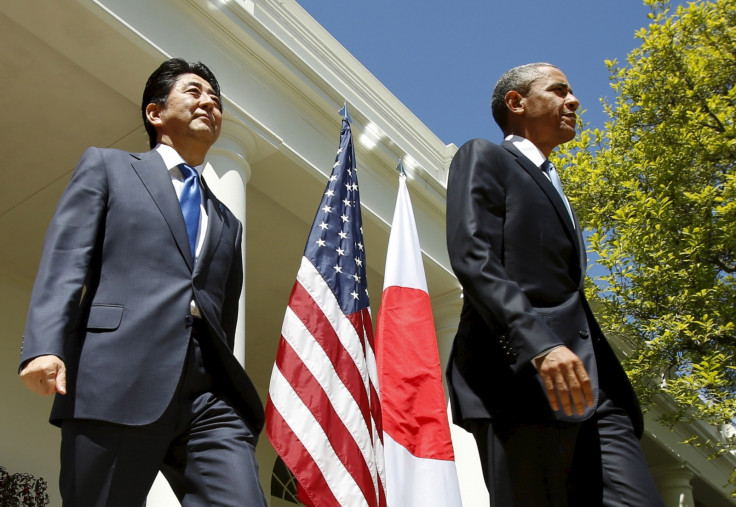Target Tokyo: WikiLeaks reveals NSA spied on Japanese PM Shinzō Abe and companies like Mitsubishi

The US National Security Agency (NSA) undertook systematic mass surveillance of Japanese politicians, ministries and corporations over a number of years, according to recently published documents. The revelations come from whistleblowing organisation WikiLeaks, which released a list of 35 top secret targets in Japan on Friday morning (31 July).
The most high-profile target listed in the "Target Tokyo" documents is the current Prime Minister of Japan, Shinzō Abe, while corporations named include car-manufacturing giant Mitsubishi. The documents also reveal that the US bugged Japan's confidential G8 proposals on climate change, as well as spying on Japan's secret World Trade Organisation (WTO) plan.
The period of spying on Abe dates from the Prime Minister's first term in office, lasting from September 2006 until September 2007. Abe has since returned to office and the latest leaks will come as a major embarrassment for the US and in particular President Barack Obama who just months ago described Japan as "one of America's closest allies in the world" during a meeting with Abe in Washington. They also follow similar leaks revealing intimate surveillance on other allies that include Brazil, France and Germany.
'There are no rules'
WikiLeaks has not revealed the source of the documents, though they are likely to be from the cache of as-yet unpublished files released to journalists by former NSA contract worker Edward Snowden.
Julian Assange, co-founder and editor-in-chief of WikiLeaks, said the revelations should not come as a surprise, given the track record of the US as a global surveillance superpower.
"In these documents we see the Japanese government worrying in private how much or how little to tell the United States, in order to prevent undermining of its climate change proposal or its diplomatic relationship," Assange said in a statement.
"And yet we now know that the United States heard everything and read everything, and was passing around the deliberations of Japanese leadership to Australia, Canada, New Zealand and the UK. The lesson for Japan is this: do not expect a global surveillance superpower to act with honour and respect. There is only one rule: there are no rules."
WikiLeaks investigations editor Sarah Harrison speculated that climate change policy enacted by Japan, as well as the country's industry, may well have been different had the NSA not spied on negotiations.
"Today's publication shows us that the US government targeted sensitive Japanese industry and climate change policy," Harrison said. "Would the effectiveness of Japan's industry and climate change proposals be different today if its communications had been protected?"
© Copyright IBTimes 2025. All rights reserved.





















